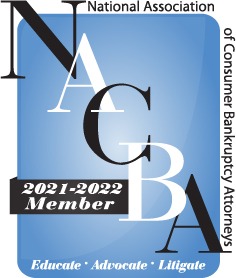Q: Can I protect my car(s) in bankruptcy?
The flip side, is that if you got into a leased vehicle that has gotten just way too expensive for you to justify making continued payments, you have the option to “reject” the lease, return the vehicle to the lender and discharge or wipe out whatever balance remains.
Owned vehicles. Clients are often surprised to learn that there is a possibility that the family car that is used to transport mom and dad to and from work, could possibly be subject to forfeiture. “How does the court expect me to get to work if I don’t have a car?” is a common sentiment. Although the noble principles of bankruptcy stand for the proposition of giving people a fresh start or a second chance, never lose sight of the fact that when it comes to the process of liquidating your assets to pay creditors, it is always a matter of dollars and cents and exemptions (statutes that may protect your assets as a matter of law from being liquidated). If your vehicle is paid in full and worth more than several thousand dollars, you are at risk of forfeiture, and it matters little whether you were using it chauffer the Pope around the Vatican, shuttle food to the homeless or drive to and from work. So how do you protect your sacred vehicle?
The same principals of exemptions and equity apply to your owned vehicles. The Florida-based motor vehicle exemption that applies in bankruptcy, will only protect a paltry $1,000 worth of equity. However, if you’re driving a “clunker” free and clear of any liens, but the fair market value is only about $1000-$3000, there’s an excellent chance that the trustee in bankruptcy will “abandon” the estate’s interest in the vehicle back to you at the closing of your bankruptcy case.
This is because if the trustee in bankruptcy were to liquidate (sell) the vehicle, you would be entitled to the first $1000 of proceeds, since that is the value of your motor vehicle exemption. The trustee will presumptively have costs of sale, often in the form of a buyer’s premium that could run several hundred dollars to a thousand dollars and/or storage fees. When these costs of sale are factored in, there would be little if any equity for the trustee to capture for the benefit of your
unsecured creditors.
On the flip-side, suppose you’re driving a brand new Series 8 BMW that is worth about $150,000 but you owe the bank $155,000 (negative equity). This is a worse situation for a bankruptcy trustee than trying to liquidate your “clunker” because you have negative equity in the vehicle. There is literally nothing for the trustee to liquidate, since the secured lender would have to be paid first, leaving no net proceeds available for your unsecured creditors. Once again, the trustee would abandon the bankruptcy estate’s interest.
Of course if you’re driving a Series B BMW that you owe $155,000 on, your monthly payments are probably extremely expensive. Many bankruptcy debtors use the bankruptcy case to cut losses or scale down by surrendering the vehicle to the secured creditor (lender) and discharging (wiping out) whatever balance is owed.
Keep in mind if your vehicle was purchased with your spouse as a Tenancy by the Entireties property then you would be able to protect the equity in that vehicle regardless of how much equity you had in it —provided there were no joint creditors of you and your spouse.
Florida’s Constitutional and “Wild Card” Personal Property Exemptions in bankruptcy. Florida has a constitutional personal property exemption worth $1,000 to you and another $1,000 to your spouse if you are both filing for bankruptcy together. The exemptions are stackable ($2,000) which can be used to protect your equity in home furnishings, bank accounts, cash under the mattress, clothing, as well as excess equity in other assets that might not otherwise be full protected, such as excess equity in motor vehicles or right to receive an income tax refund. The exemption is found at Fla. Const. art. X, § 4(a)(2) (“Any Personal Property”).
Only if you are NOT utilizing a homestead exemption to protect the equity in your home (perhaps you are a renter instead of a homeowner?) you will benefit from Florida’s “Wild Card” personal property exemption. The exemption is found at Fla. Stat. Ann. § 222.25(4).
The “Wild Card” is worth $4,000 to you and an additional $4,000 to your filing spouse (if you file together) and the exemptions are stackable – meaning, you will have $8,000 in “Wild Card” exemptions. Coupled with your $2,000 in constitutional exemptions, you’ll have a total of $10,000 in personal property exemptions to protect all types of personal property described above (provided no homestead exemption utilized) in your Florida bankruptcy.


